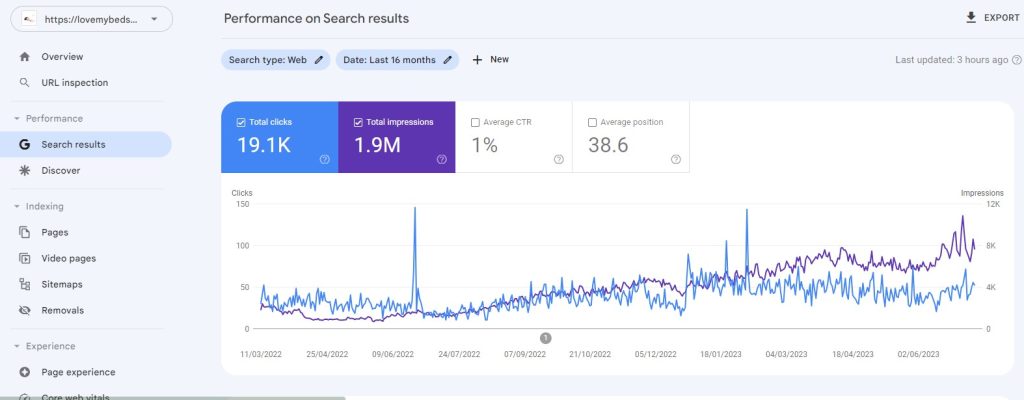Measuring the success of your Search Engine Optimization (SEO) efforts is crucial for understanding the effectiveness of your strategies and making data-driven decisions. By tracking key metrics and using analytics tools, you can gain valuable insights into your website’s performance and identify areas for improvement. In this blog post, we will explore the key metrics and analytics tools you need to measure SEO success and track your performance.
Table of contents
1. Organic Traffic:
Organic traffic refers to the number of visitors that come to your website through search engine results. Tracking organic traffic allows you to understand how effectively your SEO strategies are driving visitors to your site. Tools like Google Analytics provide detailed reports on organic traffic, including the number of sessions, pageviews, and the sources of organic traffic.
2. Keyword Rankings:
Monitoring your keyword rankings is essential for evaluating the success of your SEO efforts. By tracking your rankings for target keywords, you can assess whether your website is appearing in relevant search results. Tools like SEMrush, Moz Pro, and Ahrefs offer keyword tracking features that allow you to monitor your keyword positions and track changes over time.
3. Click-Through Rate (CTR):
Click-through rate measures the percentage of users who click on your website’s link in search engine results. A high CTR indicates that your meta titles and descriptions are effectively attracting users to click on your website. You can track CTR using Google Search Console and analyze the performance of pages and keywords to optimize your ctr

4. Bounce Rate:
Bounce rate measures the percentage of users who leave your website after viewing a single page. A high bounce rate can indicate issues with user experience or content relevance. By tracking bounce rate using Google Analytics, you can identify pages with high bounce rates and optimize them to improve user engagement and reduce bounce rates.
5. Conversion Rate:
Conversion rate measures the percentage of visitors who complete a desired action on your website, such as making a purchase, filling out a form, or subscribing to a newsletter. Tracking conversion rates allows you to assess the effectiveness of your SEO strategies in driving desired user actions. Google Analytics provides conversion tracking to measure and analyze conversions rates.
6. Backlink Metrics:
Backlinks are an important factor in SEO, as they indicate the authority and relevent To your website. Tracking backlink metrics like referring domains, domain authority, and anchor text distribution helps evaluate your backlink profile’s quality. Tools like Ahrefs and Moz Pro provide backlink analysis features.
7. Page Load Speed:
Page load speed is a critical factor in user experience and SEO. Slow-loading pages can lead to higher bounce rates and lower search engine rankings. Google PageSpeed Insights and GTmetrix analyze website performance, identifying areas for faster page load speed.
Conclusion:
Measuring the success of your SEO efforts requires tracking key metrics and utilizing analytics tools. By monitoring organic traffic, keyword rankings, click through rates, bounce rates, conversion rates, backlink metrics, and page load speed, you can gain valuable insights into your website’s performance and make data driven decisions to optimize your SEO strategies. Use tools like Google Analytics, SEMrush, Moz Pro, Ahrefs, and performance analysis tools to track and measure your SEO success effectively.
if you are Looking For Amazon Content Read here Amazon FBA box labels
FAQ’s
To measure the effectiveness of your SEO strategies, you can track key metrics such as organic traffic, keyword rankings, click through rates, bounce rates, conversion rates, backlink metrics, and page load speed. By using analytics tools like Google Analytics, SEMrush, Moz, and Ahrefs, you can gather data and insights to assess the performance of your SEO efforts.
Organic traffic refers to the number of visitors that come to your website through search engine results. Tracking organic traffic is crucial as it helps you understand how good your SEO strategies are. By analyzing reports from tools like Google Analytics, you can gain valuable insights to make informed decisions for further optimization.
Click-through rate (CTR) measures the percentage of users clicking on your website’s search engine link. Monitoring CTR with tools like Google Search Console helps analyze page and keyword performance, optimize titles and descriptions, and boost website visibility and search engine traffic.




